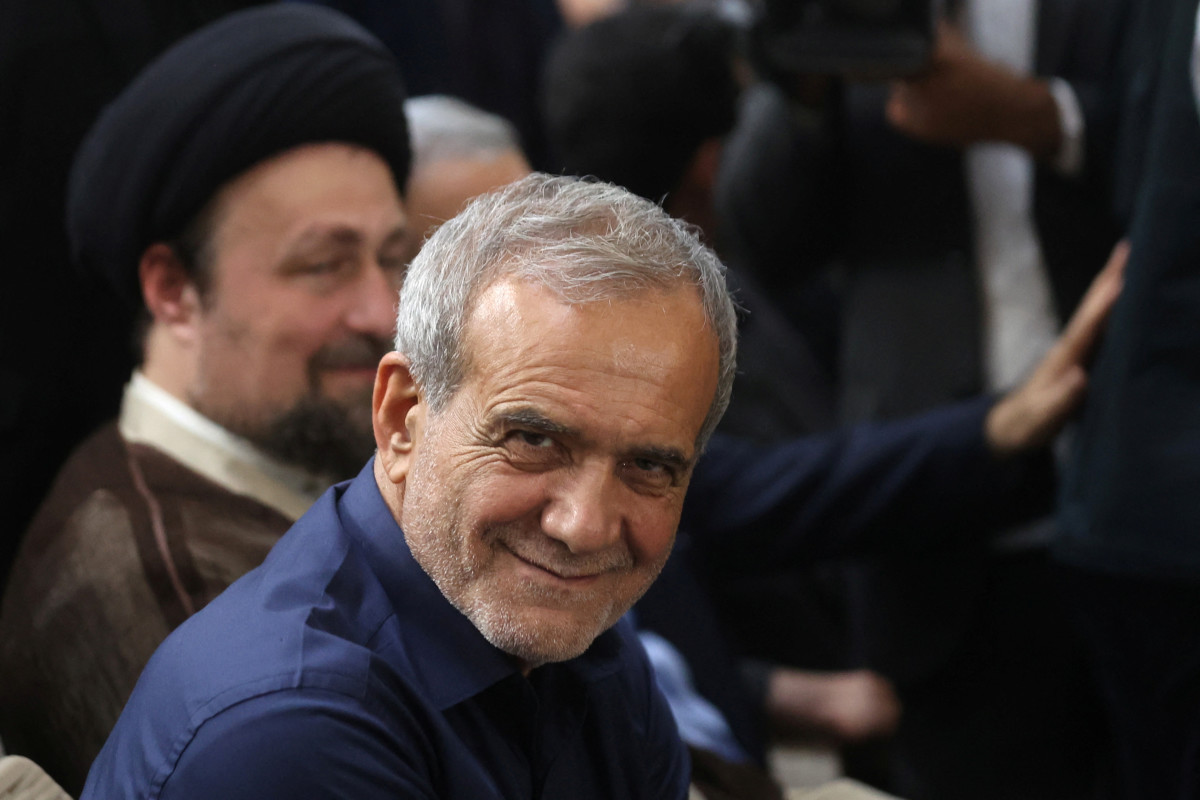Iran’s decision to sell short-range missiles to Russia, which complement Moscow’s existing arsenal, appears on the face of it to be a political setback for Masoud Pazkhian the new reformist president of Iran. I appreciate that Patrick Wintour the diplomatic correspondent of the British newspaper “The Guardian”, in an analysis he published.
According to him, Pazkhian was elected on the basis of a promise to remove sanctions and develop more balanced relations with the East and the West, especially with Europe. Most of his diplomatic appointments, including keeping the former foreign minister Javad Zarif As a consultant, emphasize this intention. In Tehran, a lively discussion has even begun regarding the true degree of compatibility between the interests of Iran and Russia.
Wintour cites the Salal Sadatian, the former acting Iranian ambassador to Britain in the 1980s, who said: “It is not right to cut off relations with Russia or create a conflict, but a balance must be reached as soon as possible. The balance is what will help us achieve our goals. If we are looking for 8% growth and attracting foreign capital , we must create a balance.”
Critics of Iran’s relations with Russia pointed to Moscow’s positions in the Armenia-Azerbaijan conflict, which they claim have harmed Iran’s territorial integrity. Resentment was also expressed over Russia’s position regarding Iran’s claim to three islands in the Strait of Hormuz. In the reformist press it is claimed that Russia is trying to sabotage better communication between Iran and Europe.
However, as the diplomatic correspondent points out, in the first major strategic decision since Pashkhian’s election, the Iranian military provided, according to the US Secretary of State Anthony Blinkenup to 200 short-range missiles to Russia for use in Ukraine, a country of great strategic importance to Europe. Wintour comments that this is a mysterious way to open a new chapter in relations with the West.
Wintour offers several possible explanations for this move. First, he notes that Iran denies supplying the weapons, but American intelligence claims otherwise. According to him, the truth will become clear when these missiles are activated in Ukraine this winter.
Second, Wintour raises the possibility that in exchange for the missiles, Russia provides Iran with nuclear technology or nuclear materials. He notes that the US Secretary of State, Anthony Blinken, hinted at this in a joint statement with the British Foreign Secretary, David Lemmy, in London. It is possible that Iran estimates that Russia will emerge strengthened from the conflict in Ukraine and wants to be close to the winner. Wintour mentions that the former Russian Defense Minister, Sergei Shoigu, recently visited Tehran for discussions on signing a comprehensive strategic partnership.
A third explanation offered by Wintour is that Pazkhian is a well-intentioned figure, but distracted by many internal crises. According to Wintour’s information, the contract for the delivery of the missiles was signed at the end of 2023, before the election of Pazeshkian and the death of the previous president. Ibrahim Raisiin May. Pazkhian could have intervened when Russian military personnel were being trained this summer on the use of Iran’s Project 360 missiles, but he did not. Wintour explains that Pazeshkian had already made a number of strategic concessions to the conservatives, believing that the reformists would not advance if they confronted the unelected state.
Finally, Wintour raises the possibility that Pazkhian simply does not control Iran’s foreign and security policy, as is often claimed. According to this approach, the real power in determining foreign policy in Iran remains with the Revolutionary Guards and the Supreme Leader, Ayatollah Ali Khamenei. If this is true, Wintour points out, it leaves Pazkhian unable to implement his new economic policy, which depends on breaking the cycle of sanctions.
